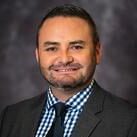As we reflect on this anniversary of Census Day, we’re reminded that we ALL deserve to be counted fairly and accurately. We ALL have a stake in how our government distributes resources and representation. Yet, the census still fails to accurately and adequately count ALL who live in this country. What that means practically is that the shortcomings of the 2020 Census remain with us in many forms. And while 2030 may seem distant, the groundwork for our next census has been underway for years – with the majority of related research, analysis, planning, and survey design to conclude by the end of 2025.
Too many of us across philanthropy and government assume a hibernation mindset in between decennial census years. We have work to do today and into the mid-decade years to ensure that in 2030 each person – regardless of race, age, background, or geography – is counted and all communities are represented fairly. Philanthropy must support this work to ensure that practitioners and policymakers have the resources they need to engage in this work, to avoid a fiscally starved Census Bureau with fewer resources for thorough 2030 Census research, testing, and preparations.
As shared previously in FCCP’s 10-Year Blueprint for Philanthropic Census Engagement, there are meaningful year-by-year actions you can take now to help build upon our groundwork for equity and inclusivity in 2030. Funders should:
- Make multi-year grants to national and state-based groups advocating for prudent policy and operational decisions that will affect the accuracy of the 2030 Census and American Community Survey – both for early census campaign development and real-time outreach and promotion campaigns;
- Participate in educational opportunities, such as Census Collaborative Convenings scheduled for July and December of this year (more details coming soon!), to connect and strategize with your philanthropy and practitioner peers; and
- Advocate for changes to ensure that historically undercounted communities are accurately reflected through the census and other federal data collections. This includes critical opportunities to update federal data collection around race and ethnicity, advance data equity for the LGBTQI+ community, and end prison gerrymandering.
Make no mistake, our actions – or inaction – today will influence the extent to which historically undercounted populations are included in the 2030 Census. Leveraging your organization’s financial resources, communications and education platforms, and advocacy capital is vital if we truly wish to lay the foundation for an equitable democracy – across redistricting, voting, representation, and the distribution of public resources. And if we truly wish to live in a country where everyone counts.
Onward towards 2030!

Sol Marie Alfonso-Jones
Senior Program Officer, Long Island Community Foundation
Chair, Funders’ Census Initiative, FCCP

David Martinez III
Director of Community Engagement, Vitalyst Health Foundation
Vice Chair, Funders’ Census Initiative, FCCP

LaShanda A. Jackson
Executive Director, Funders’ Committee for Civic Participation